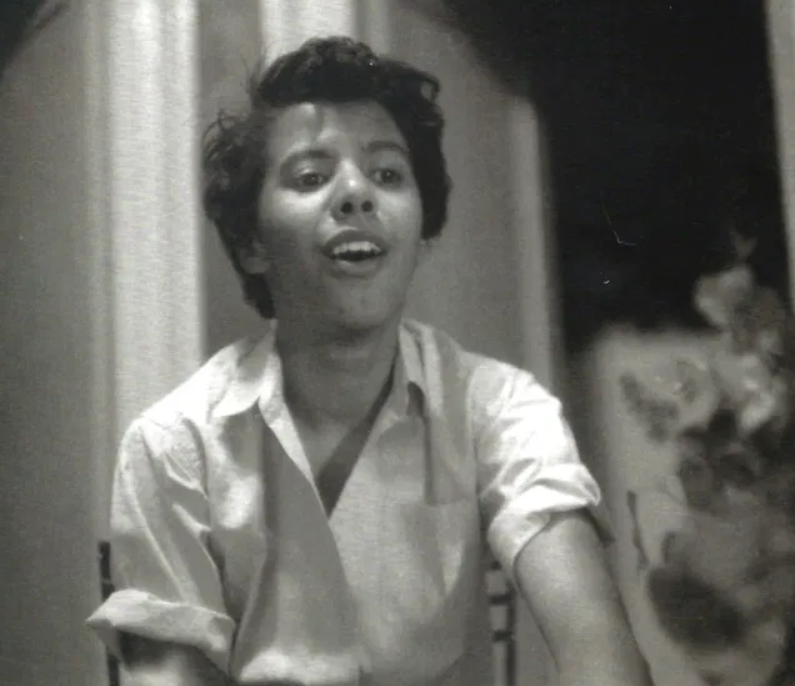
This pandemic has us living like vampires. In response to 엄마's worry that we were not getting enough Vitamin D and my worry that I would soon become as pale as birdshit, we have been spending our mornings on our porch, sitting before the sun like old men. We waddle outside with our living room chairs, which we turn to face the heat. We hitch up our long sleeves and prepare to just be for some minutes.
엄마 listens to her podcasts, and I typically listen to something as well. Usually something with words and usually something with a bit of weight to it. Today I listened to Lorraine Hansberry's 1959 interview with radio host Studs Terkel, literally only because I love the low, husky quality of Ms. Hansberry's voice. I'm not aware of too many long-form recordings of Lorraine Hansberry, so this particular hour-long conversation is something of a staple for my easily enchanted ears.
One thing I often forget about this recording is how it ends. The version of the interview kept in the Studs Terkel archive contains an extra bit at the end, recorded by Terkel some 12 years after the original conversation took place. By then, Lorraine Hansberry had already passed away, at the age of 34. In the later commentary, Terkel's voice is different, almost choked. He reflects on the decade past. He plays a number of songs which Ms. Hansberry had enjoyed in life, as a kind of tribute.
That's Billie Holiday, of course. And that's one of the earliest of Billie Holiday's recordings, "Fine and Mellow". It's the reverse side of "Strange Fruit", on old Commodore. And Billie Holiday was also a favorite of Lorraine Hansberry.
That section, preceded only by a short silence after the original interview with Lorraine Hansberry, always hits like a gut punch. As I write this, I'm suddenly reminded of a quiet moment from the 1971 conversation between Nikki Giovanni and James Baldwin. As Baldwin reflects on his generation of thinkers and comrades, the younger Giovanni comments this, weakly:
- Baldwin: When we had that famous meeting with Bobby Kennedy, Lorraine said to Bobby... who's also dead...
- Giovanni: (quietly) Everybody's dead.
Needless to say, my morning suddenly dipped into somewhere rather somber. And when I am sad, I tend to do things that let me continue to feel sad. I like to indulge it.
As is often the case, I turned first to some sad music. James Baldwin, one of Lorraine Hansberry's close friends, loved the blues, so the blues seemed a good place to start. I don't know that many blues singers, however, and I know even fewer blues songs, so finding a song which approached the particular flavor of gay melancholy I was feeling proved to be rather difficult. A rather appropriate way to attend to this particular melancholy, however, is to listen to Nina Simone's To Be Young, Gifted and Black, a song written in honor of her friend Lorraine Hansberry herself.
Here is a link to the lyrics of the song To Be Young, Gifted and Black. Sadly, I was not able to find a transcription of Simone's 1969 performance of the song, which includes a moving introduction dedicated to her friend. Here is an excerpt from that introduction, instead:
And, um, I think that very soon now, maybe four...four or five weeks, I won't be able to sing it anymore, for each time I do it, she... comes a little closer, and I miss her a little bit more.
Imani Perry, in her biography of Lorraine Hansberry titled Looking for Lorraine, mentions that Lorraine Hansberry was once in a relationship with the photographer Molly Malone Cook. Cook would later meet the lesbian poet Mary Oliver, with whom she spent the rest of her life. Molly Malone Cook passed away before her partner Mary Oliver. I feel I should include this poem which Mary Oliver wrote after the passing of her beloved:
All of a sudden she began to whistle. By all of a sudden
I mean that for more than thirty years she had not
whistled. It was thrilling. At first I wondered, who was
in the house, what stranger? I was upstairs reading, and
she was downstairs. As from the throat of a wild and
cheerful bird, not caught but visiting, the sounds war-
bled and slid and doubled back and larked and soared.
Finally I said, Is that you? Is that you whistling? Yes, she
said. I used to whistle, a long time ago. Now I see I can
still whistle. And cadence after cadence she strolled
through the house, whistling.
I know her so well, I think. I thought. Elbow and ankle-
Mood and desire. Anguish and frolic. Anger too.
And the devotions. And for all that, do we even begin
to know each other? Who is this I’ve been living with
for thirty years?
This clear, dark, lovely whistler?
